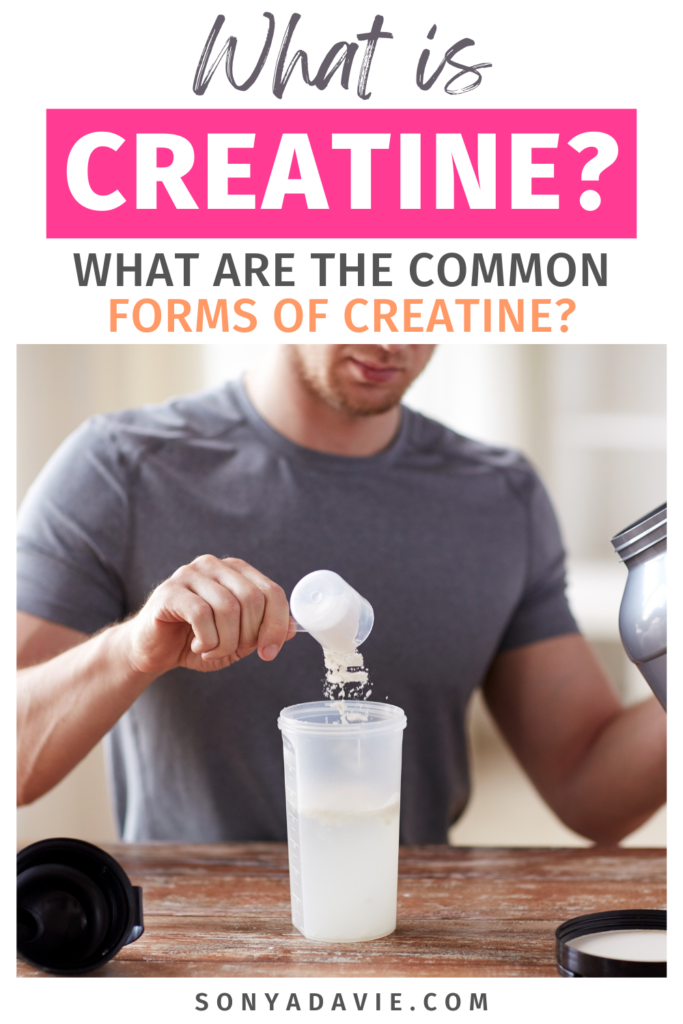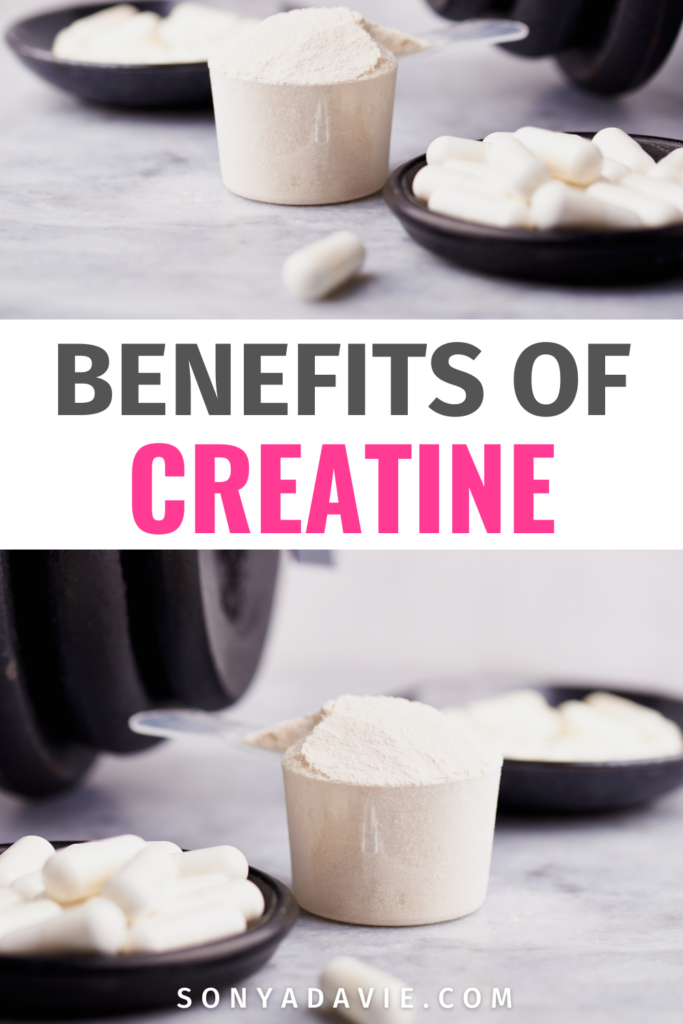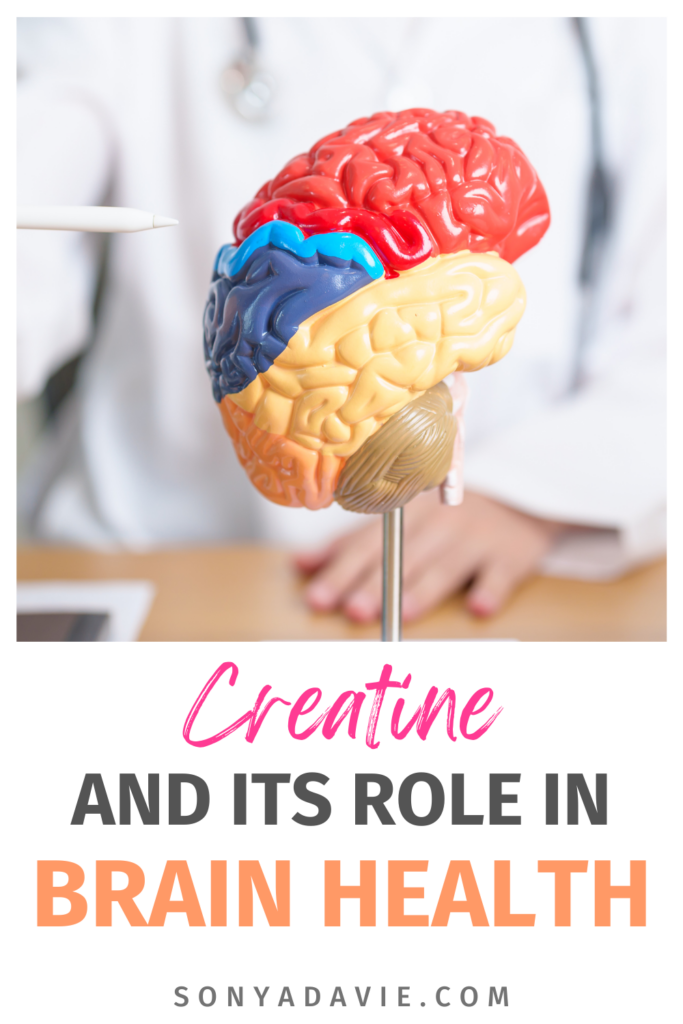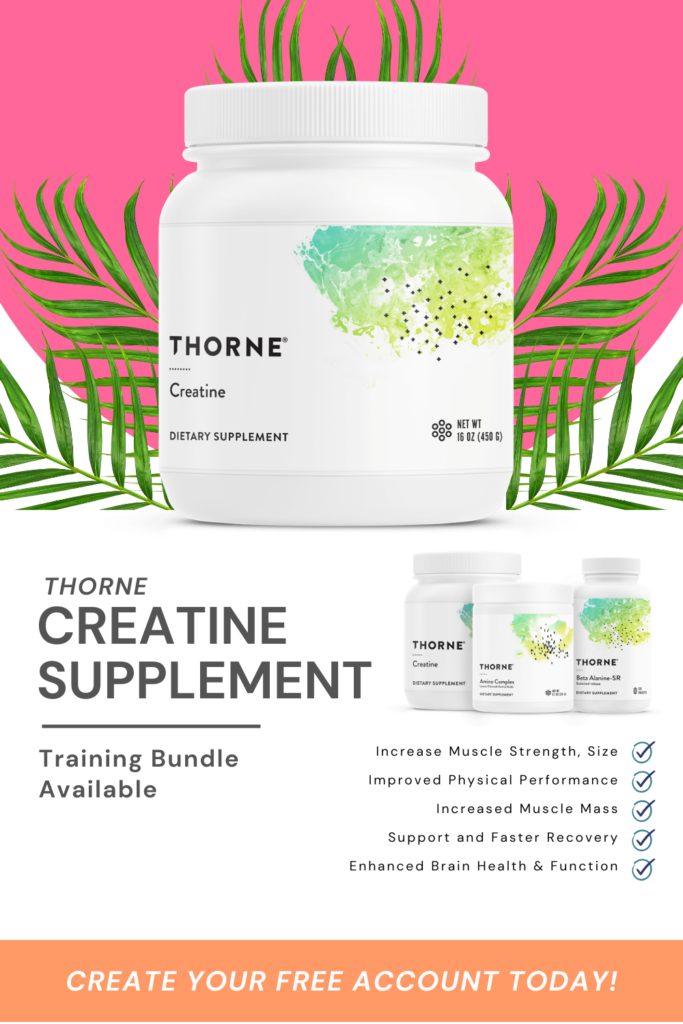Creatine isn’t just for muscles—it could power up your mind too.
When most people think of creatine, they picture gym-goers and athletes reaching for that post-workout scoop. But did you know this popular supplement is making waves beyond the fitness world?
I’m excited to share how creatine can be a game-changer for both your physical and mental health.

This post is all about the benefits of creatine.
In this blog, take a closer look at the powerful benefits of creatine and how it may enhance your overall well-being.
What is Creatine?
If you’ve ever walked down the supplement aisle at a health store, you’ve probably seen creatine powders or capsules marketed toward bodybuilders and athletes.
But what exactly is creatine?
Creatine is a natural compound found in small amounts in foods like fish and meat. It’s also produced, synthesized by our body, mainly in the liver, kidneys, and pancreas. Once ingested or synthesized, creatine is stored in muscles and the brain as phosphocreatine, where it serves as a quick energy source. This is vital for activities that require bursts of energy, like lifting weights or sprinting. (Source)

What Creatine Does
Creatine plays a crucial role in replenishing ATP (adenosine triphosphate), the body’s primary source of energy.
During intense physical or mental activities, ATP levels can drop rapidly, leading to fatigue and reduced performance.
By supplementing with creatine, you help your cells regenerate ATP more efficiently, enabling them to function at their best. This process is essential not only for enhancing physical performance but also for supporting cognitive functions that demand focus, mental clarity, and quick thinking.
As a result, studies show that creatine proves to be a versatile and valuable addition to any wellness routine.
Forms of Creatine
Before jumping into supplementation, it’s essential to understand the different types available. Creatine supplements come in several forms, including:
- Creatine Monohydrate: The most studied and widely used form, known for its safety and effectiveness.
- Creatine Hydrochloride (HCL): Easier to dissolve and may reduce bloating.
- Buffered Creatine: Designed to minimize stomach discomfort.
- Micronized Creatine: A finer version of creatine monohydrate for better solubility.
Now that we know what creatine is and the forms it comes in, let’s explore how it can benefit you.
Benefits of Creatine
Creatine is well-known for boosting muscle performance, but its advantages extend beyond physical fitness. Here’s what creatine can do:

1. Increase Muscle Strength, Size, and Improved Physical Performance
By facilitating higher ATP production, creatine enhances strength and power during high-intensity exercises, leading to greater muscle strength and size. This increased energy availability allows for more reps and heavier lifting, driving muscle growth over time and translating to better endurance and efficiency. This enables you to push through challenging workouts and achieve consistent training progress.
2. Increased Muscle Mass
Creatine promotes water retention in muscle cells, contributing to long-term muscle growth. This water retention makes muscles look fuller and creates an optimal environment for protein synthesis, aiding in muscle development.
3. Support and Faster Recovery
Creatine helps reduce muscle damage, inflammation, and soreness after exercise, accelerating recovery and supporting a quicker return to peak performance. By promoting muscle cell repair, creatine minimizes downtime, enabling more consistent training and progress.
4. Enhanced Brain Function
Emerging studies suggest that creatine can improve memory, cognitive function, and mental clarity, supporting overall brain health. This can enhance mental stamina, focus, and stress resilience, improving your ability to stay productive and maintain concentration under pressure.(Source)
But how does it support brain health specifically? Let’s dive deeper.
Creatine and Its Role in Brain Health
The brain, like muscles, requires high levels of energy to function efficiently and creatine’s impact on brain health is equally impressive! Here’s how creatine supports mental health:
A Potential Therapeutic Approach for Depression
Research indicates that creatine supplementation may improve mood and alleviate symptoms of depression, likely due to its role in maintaining optimal energy levels in brain cells. Depression is often linked to impaired energy metabolism in the brain, and by enhancing cellular energy production, creatine can support overall brain function and stress resilience. Studies have shown that creatine can be particularly effective when used alongside traditional antidepressants, as it helps restore ATP levels in the brain, contributing to better mood regulation.

Creatine Metabolism and Psychiatric Disorders
Early studies suggest that abnormalities in creatine metabolism may contribute to psychiatric conditions such as bipolar disorder, mood disorders, anxiety disorders, and schizophrenia, as well as difficulties in managing psychological stress. Supplementation with creatine has shown promise in improving cognitive function and emotional stability in these populations, suggesting it may be a valuable complementary approach in mental health treatment.
Cognitive Benefits of Creatine
Creatine isn’t just beneficial for those dealing with clinical conditions—it can also provide perks for healthy individuals.
Research indicates that creatine supplementation can lead to improved short-term memory and faster problem-solving skills, especially during mentally demanding tasks. Older adults, in particular, may find it helpful in combating age-related cognitive decline and maintaining mental sharpness. However, further studies are recommended to fully understand these effects.
If you’re thinking about adding creatine to your wellness routine, especially for those with increased dietary needs such as athletes or individuals who may not consume enough creatine-rich foods in their regular diet, here are some important things to keep in mind:
Creatine Supplementation
General Considerations for Creatine Supplementation
Dosage: A common approach is the “loading phase”—typically 20 grams per day, divided into 4 doses for 5–7 days, followed by a maintenance dose of 3–5 grams per day.
Timing: While creatine can be taken at any time, many individuals find post-workout consumption beneficial for optimal absorption.
Hydration: It’s crucial to stay well-hydrated when taking creatine, as it can increase water retention in muscles.
Safety & Side Effects: Creatine is one of the most researched supplements and is considered safe for most people. However, if you have kidney issues or other health concerns (gastrointestinal discomfort), it’s best to consult your healthcare provider before starting supplementation.
As a health and wellness coach, I always emphasize the importance of quality and purity in supplements.
Thorne Creatine Supplements
Thorne Creatine Dietary Supplement is a highly recommended option for those looking to support both physical and mental performance. Renowned for its purity and quality, Thorne’s creatine monohydrate offers a clean, effective way to experience the benefits of creatine without unnecessary additives.

Why Choose Thorne’s Creatine Supplements?
- NSF Certified for Sport®: Ensures the highest standards for safety and performance.
- Easy-to-Mix Formula: Convenient for daily use and seamless integration into your routine.
- Micronized and Highly Researched: Offers enhanced absorption and effectiveness.
- Colorless and Odorless: Ensures a pleasant and versatile supplement experience.
- Enhanced Solubility: Promotes better mixing and faster dissolution in liquids.

My concluding thoughts…
Creatine isn’t just for athletes or fitness enthusiasts; it can benefit anyone looking to enhance their physical and mental well-being.
Beyond boosting muscle growth and performance, creatine has potential benefits for brain health, memory, and stress reduction. Whether you want to lift heavier at the gym, think sharper at work, or support overall wellness, creatine could be the boost you need.
With proven safety, affordability, and accessibility, it’s a worthwhile addition to your wellness routine.
Try adding creatine to your daily regimen and experience the difference for yourself. Start with a trusted product like Thorne Creatine and take the first step toward a stronger, sharper you!
All the best and Wellness,
Sonya
This post is all about the benefits of creatine.
Relate Post – “Berberine” and Diabetes: Dosage, Benefits, Supplements, and What to Expect
+ show Comments
- Hide Comments
add a comment